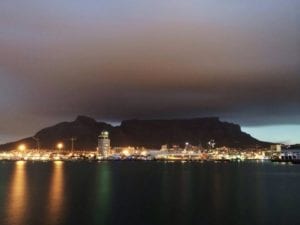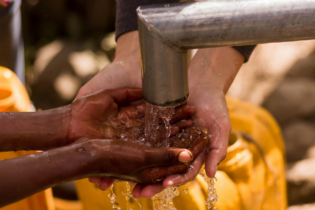The city’s mayco member for utilities Xanthea Limberg said the coming storm has raised concerns about flooding and damage to infrastructure, however she said the city is prepared to handle the outcome.
“What the city needs is rain and we welcome this weather,” she said. “The city and province need substantial rainfall to recover.” She added that while this rain will not solve the Cape’s water crisis, it will help provide some relief. The province’s average dam levels have dropped to below 20%, with half of that water unusable due to waste in the water and difficulty in pumping it out. Limberg said that if the city receives below average rainfall this winter, it will take more than three years for the city’s water infrastructure to recover. The Cape, unlike the rest of South Africa, has a Mediterranean climate bringing majority of its rainfall in winter. While water experts predict that water might dry up across the province by the end of August, the city is exploring alternative options to source water from aquifers. Alternative solutions are imperative for the province as reports and studies indicate that demand for water in the Western Cape will exceed supply by the early 2020s, without a drought. As South Africa is the 31st driest country in the world, leaders in the water sector have also said the country needs to relook at its consumption and reuse of water, as drought periods are expected in many parts of the country’s arid regions. New water habits also urgently need to be adopted as South Africa remains a naturally water scarce country.
The Western Cape has been alerted to brace itself for a monster of a storm which is expected to hit on Wednesday morning. This comes as the province battles the effects of its worst drought in almost 100 years.
The South African Weather Service (SAWS) reported that gale force winds of approximately 90km/h, swells 12 to 15 metres tall and 80mm of rain is heading directly for the Cape.
City officials and weather forecasters said they will be on high alert and appealed to residents to prepare for the impact of a tumultuous storm.
SAWS managing director Hannelee Doubell said people should prepare to stay indoors, and tie down or firmly secure outdoor equipment as “abnormally strong winds” are expected.
City officials in Cape Town said their teams are also on standby to evacuate residents in high risk areas such as informal settlements, and Disaster Management Centre spokesperson Charlotte Powell said they will be ready to take action and minimise damage if the storm poses any dangers.
SAWS issued extreme weather warnings on Monday and said the Winelands‚ Cape Metropole‚ and Overberg district should be on high alert.







